Landscape Design 6
Concept Development
This course explores the use of drawings as tools for visualization and design development. The focus is on developing an ability to use drawings to model and manipulate visual information throughout the various stages of design evolution. Techniques for examining ideas and concept alternatives through composite, perspective, orthographic, and axonometric drawings are explored. Lectures present examples of built projects and methods of recognized professionals, which illustrate the dramatic influence drawing type may have on the final form or organization of a design. The course requires intensive drawing time; students must have already mastered basic drafting and sketching skills.
Instructor
Steven Chavez
Project Location
Los Angeles
judges
Xiaojian Fan – Design Workshop
Lorena Matos – City of Los Angeles
Charles Strawter – City of Los Angeles
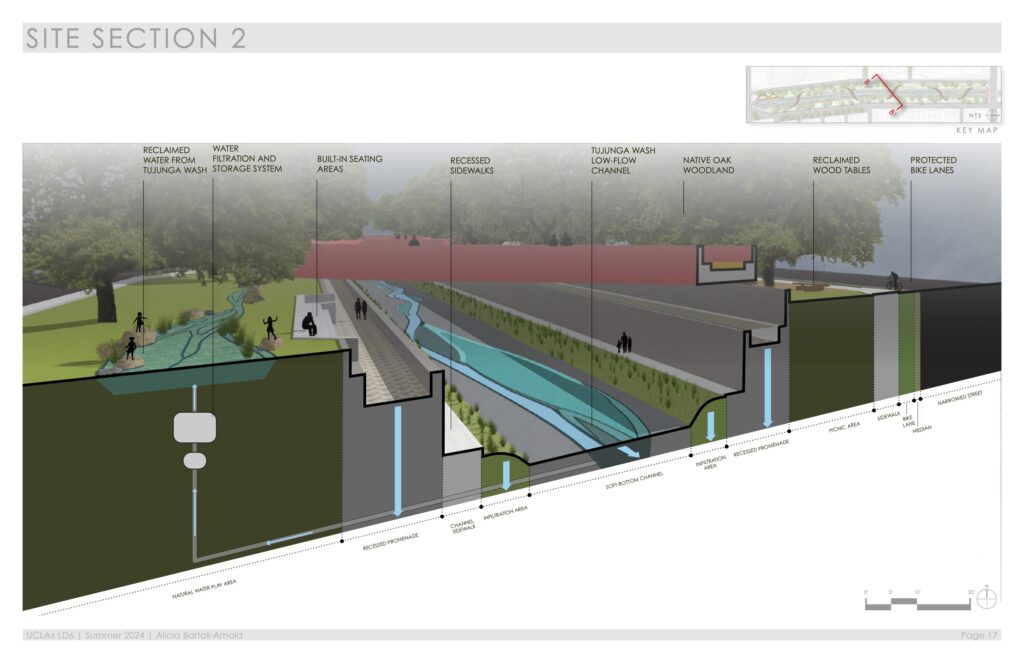

SCASLA Honorable Mention
The judges were impressed with the effective use of collages and 3D perspectives, which kept the analysis engaging and dynamic. The reclaimed water system was noted as an interesting feature, and the clear, informative section drawings combined with thoughtful use of white space made the graphics easy to follow and visually appealing.
The Great Wall of Los Angeles Park
Student: Alicia Bartoli-Arnold
Celebration, cultivation, and community are at the core of the design of this public park revitalization project located at the Tujunga Wash channel in Valley Glen.
View PDF
A Tattoo On the Scar Where the River Once Ran
Student: Michael Bircumshaw
Transforming a ‘tattoo on the scar where the river once ran’ into a landmark.
View PDF
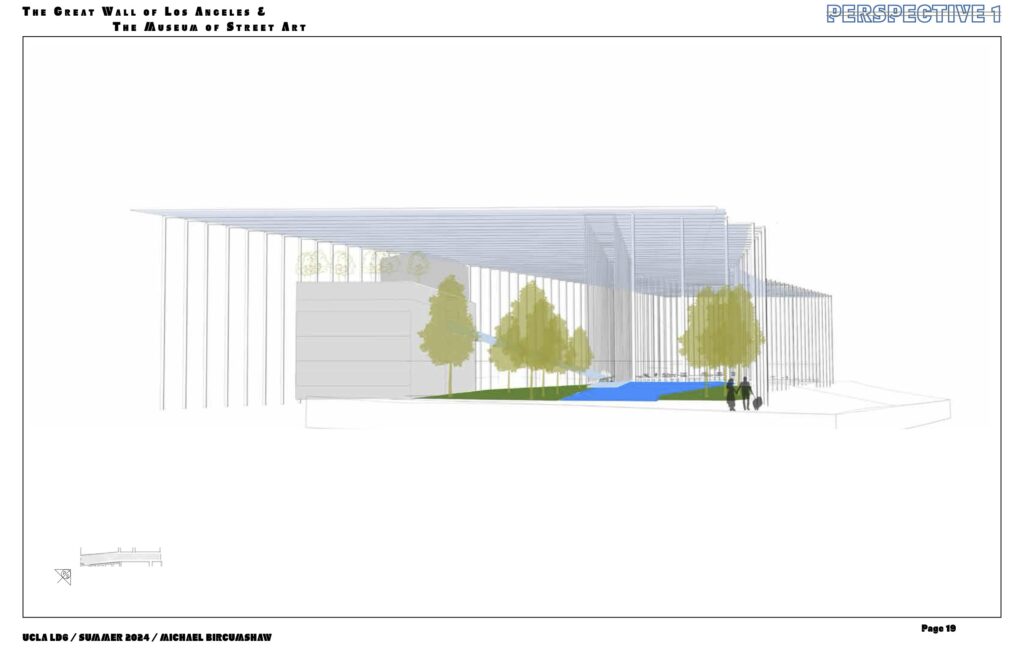
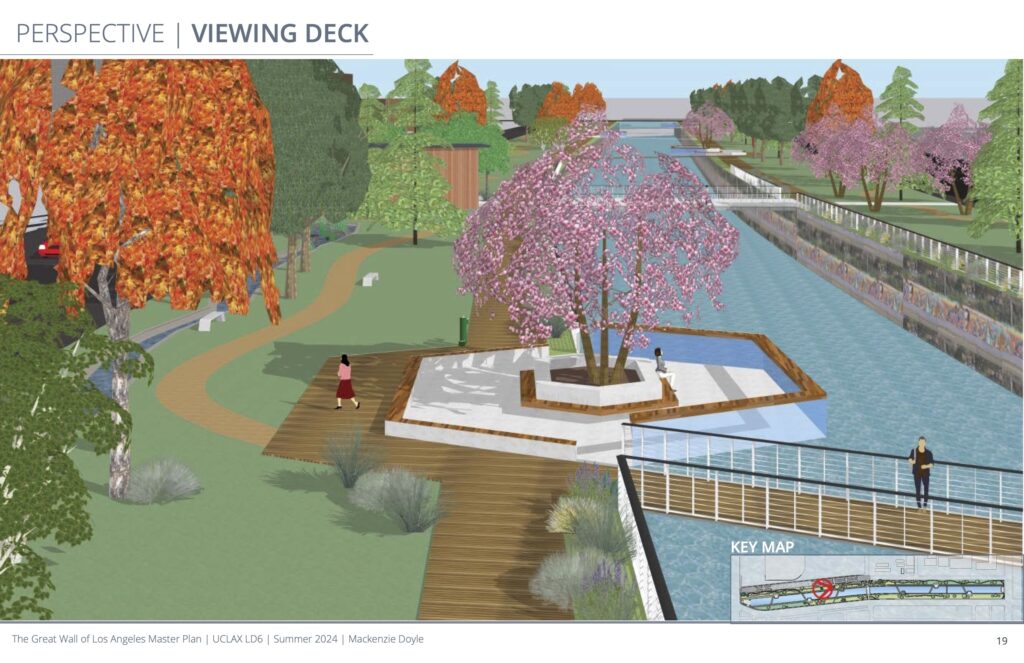

SCASLA Honorable Mention
The judges appreciated the clean and easy-to-read graphics, as well as the efficient presentation layout. The use of user-level perspective photos in the analysis was noted as a strong choice, and the bold site analysis graphics effectively communicated key elements. The design details, particularly the various railings in the model, demonstrated thoughtful attention. The project’s hierarchy of space was well-executed, and the angled cross-paths were noted for their efficiency. Overall, the passive use of space and attention to the riverbed’s constraints were well-considered.
The Great Wall of Los Angeles Park Master Plan
Student: Mackenzie Doyle
A master plan for the Great Wall of Los Angeles park and historic mural, aiming to improve connection, circulation, and engagement within the space.
View PDF
The Tujunga Wash & Great Wall of Los Angeles
Student: Aimee Kirby
Tujunga Wash and The Great Wall of Los Angeles reimagined with a strong focus on LID concepts, community and sustainability.
View PDF
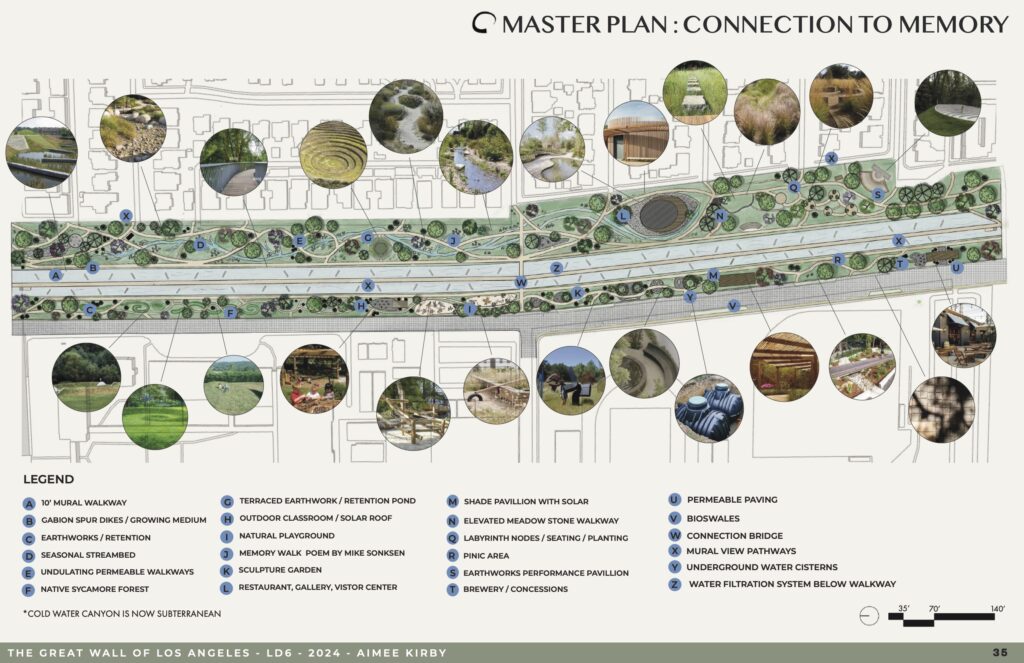
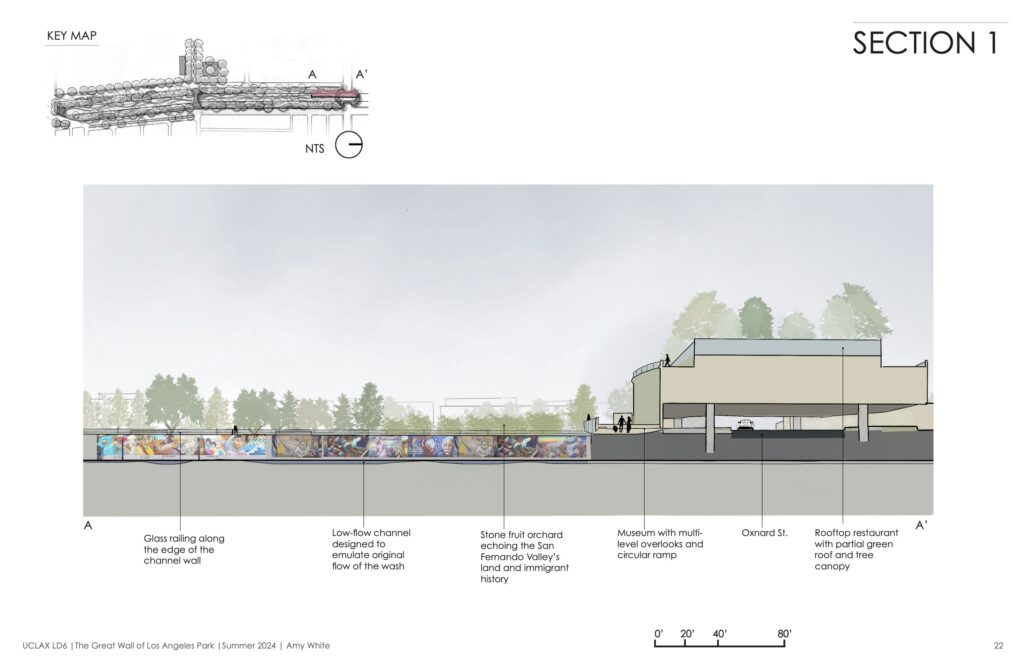

SCASLA Achievement Award
The judges were impressed with the strong graphics and thoughtful analysis throughout the project. They particularly appreciated the well-executed perspective views, effective use of sculptures as visual anchors, and the clear presentation of land use elements. The integration of functional features like the bioswale added depth to the design and enhanced the user experience.
The Great Wall of Los Angeles Park Master Plan
Student: Amy White
The Great Wall of Los Angeles Park Master Plan connects the Tujunga Greenway with the existing park’s Greenbelt, transforming the site into a world class destination for art, connection, play, sustainability and education.
View PDF

SCASLA Excellence Award
The judges were impressed by the clear flow of experience and the well-thought-out human scale design, with a good hierarchy of paths and nodes. The case studies were graphically well done, and the callout for the Mural Viewing Area was a standout feature. Overall, the clean presentation layout, effective activity nodes, and well-executed perspectives contributed to a thoughtful and diverse design.
The Great Wall of Los Angeles Park Master Plan
Student: Heather Wu
Redesign of the Tujunga Wash Greenway – Great Wall of Los Angeles park – to create a space for gather and to showcase the murals located within the Tujunga Wash channel
View PDF
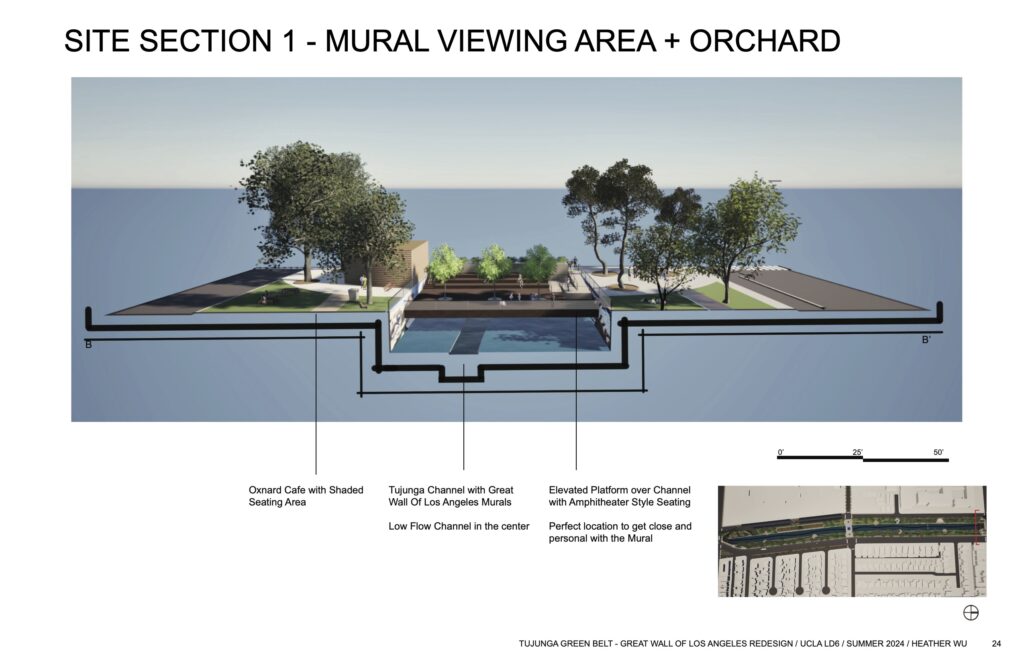
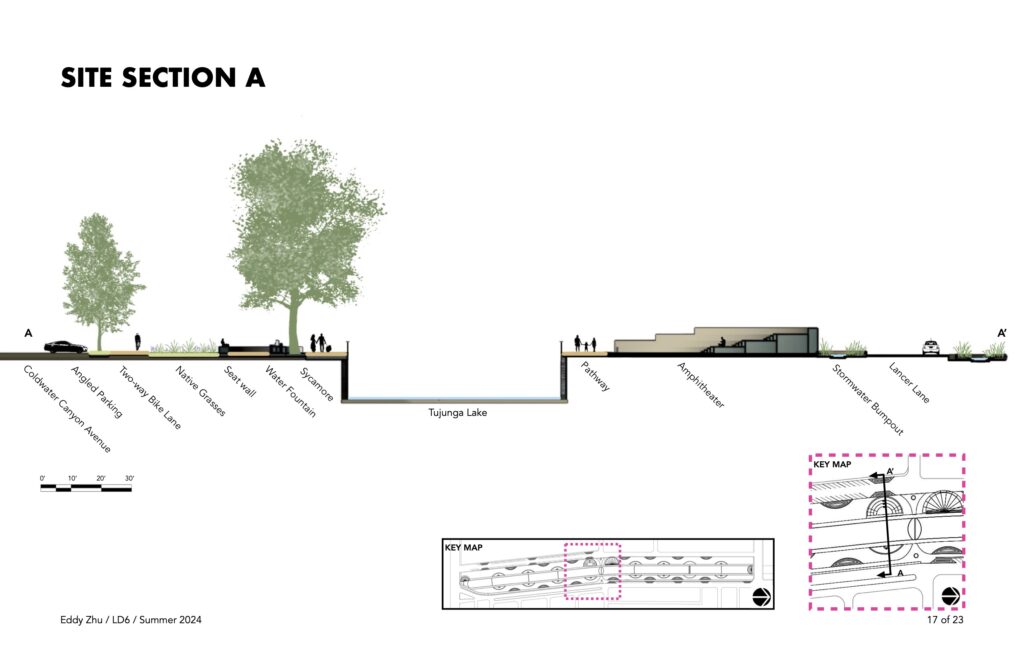
The Great Wall of Los Angeles Park Master Plan
Student: Eddy Zhu
My design features a shallow lake in the channel of the Tujunga Wash reflecting the murals of the Great Wall of Los Angeles. Bioswales, native grasslands, native oak woodlands, and an educational farm help to restore local ecology and connect visitors to nature.